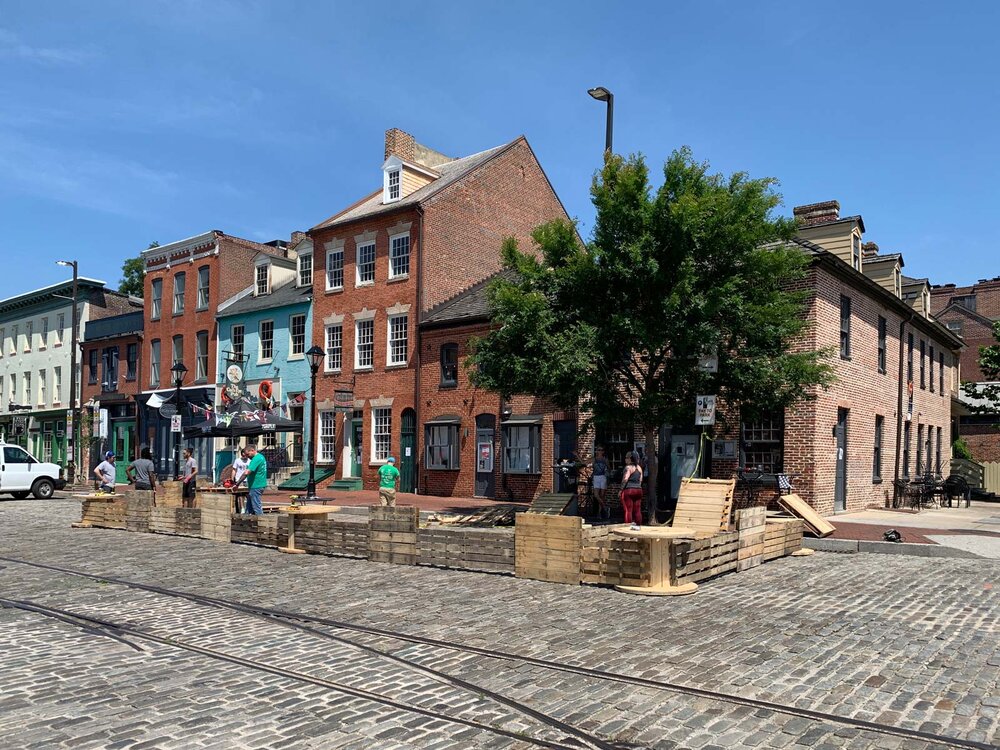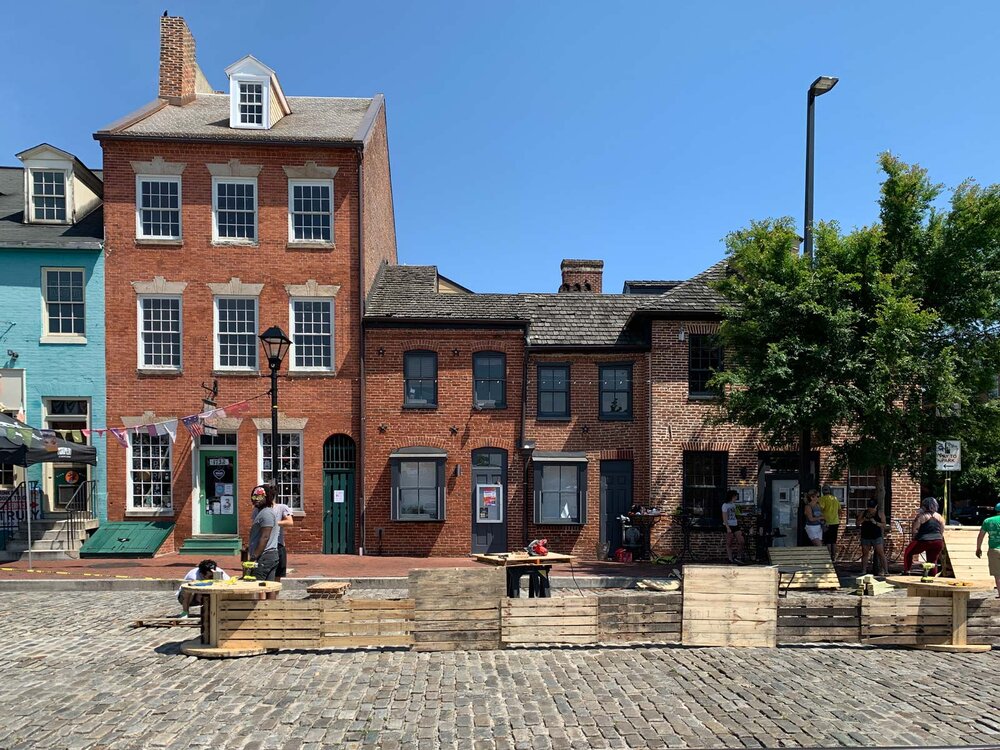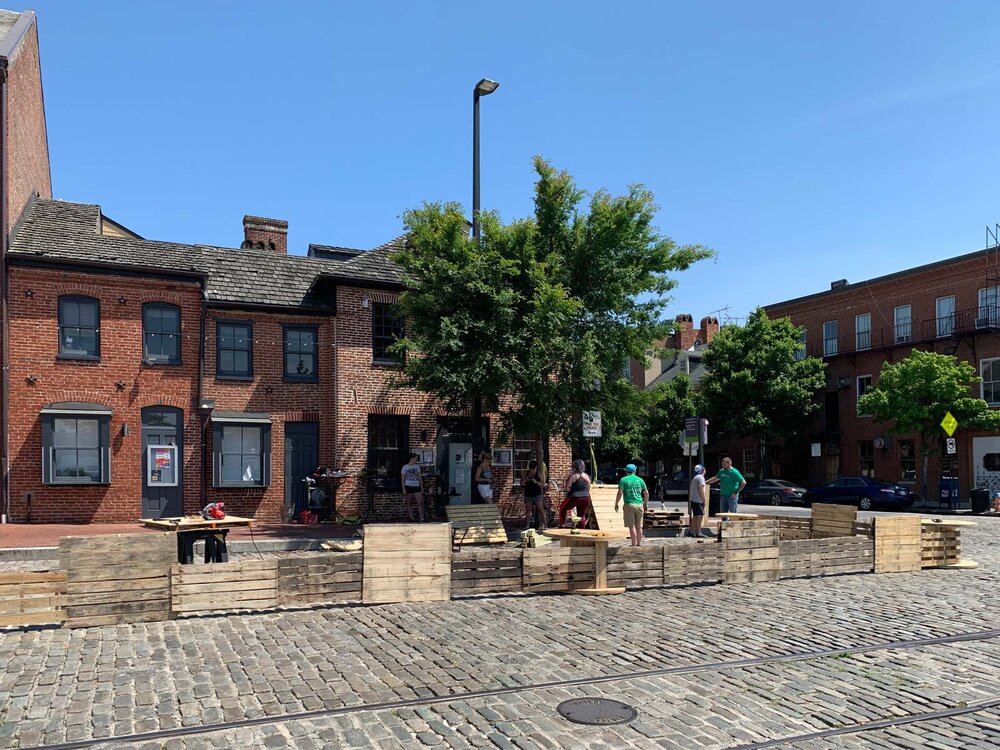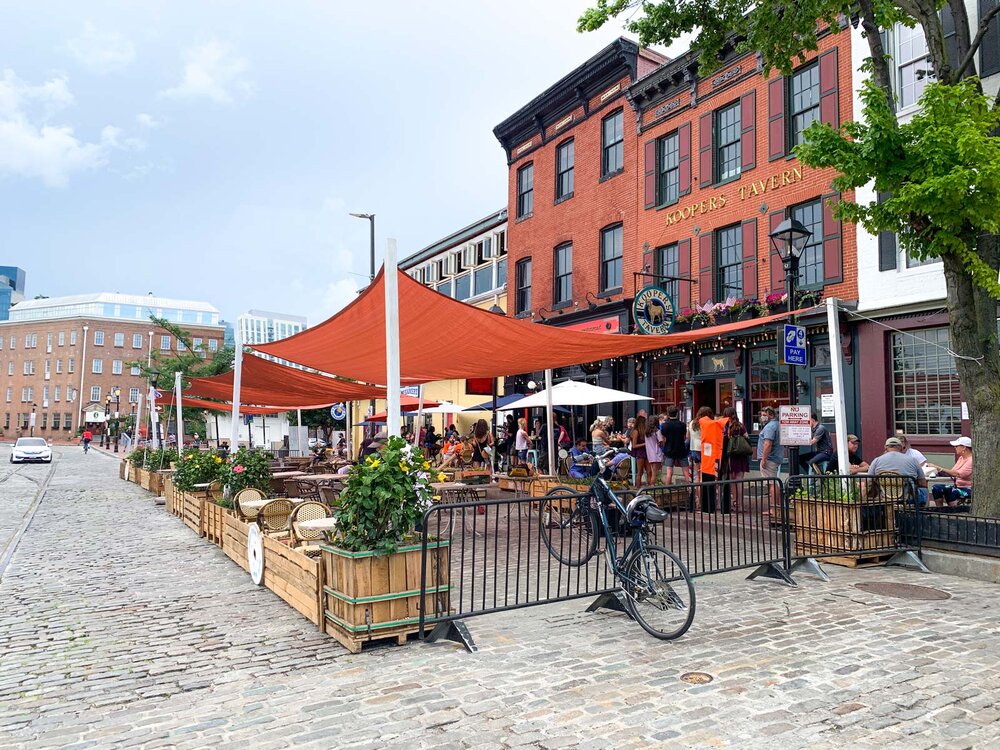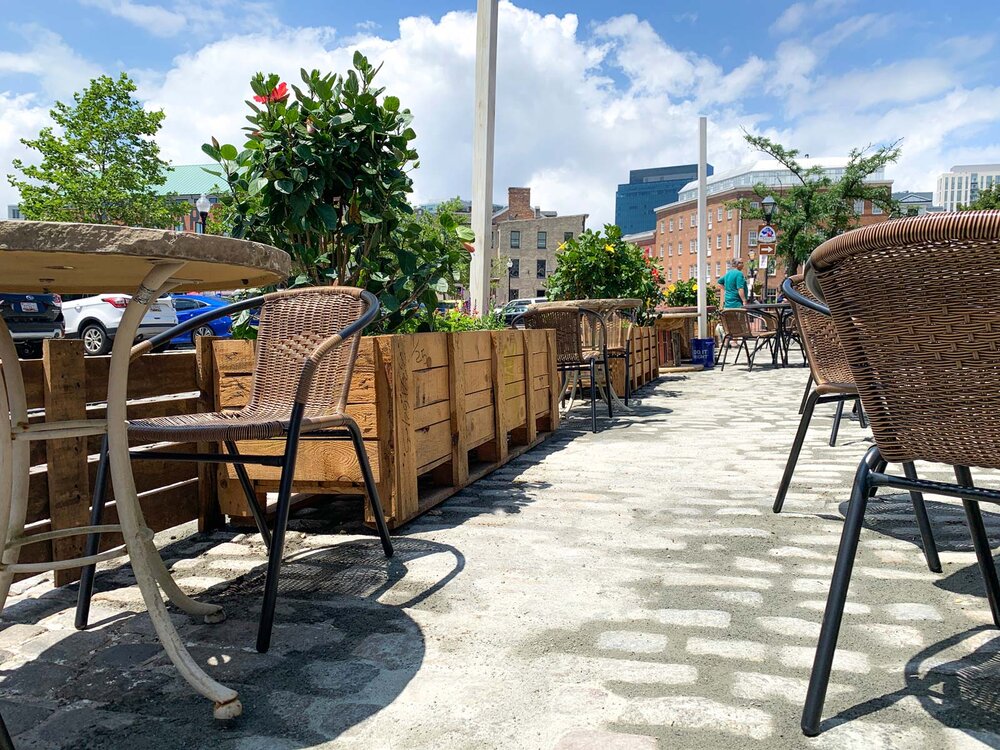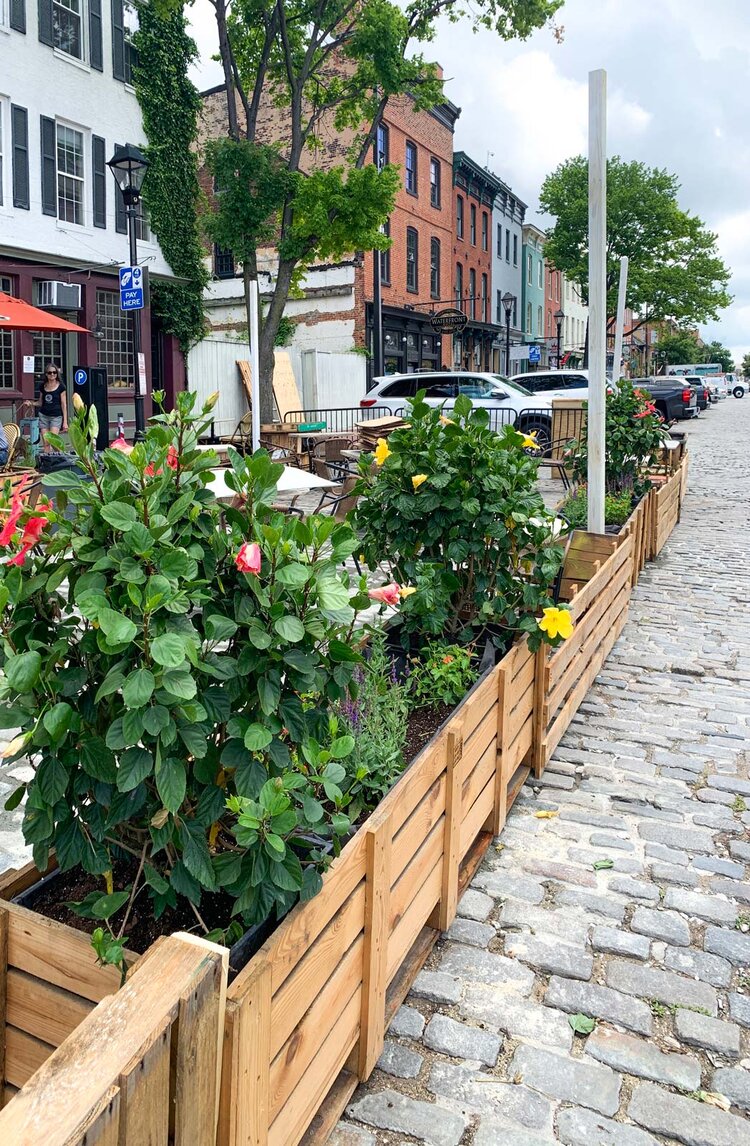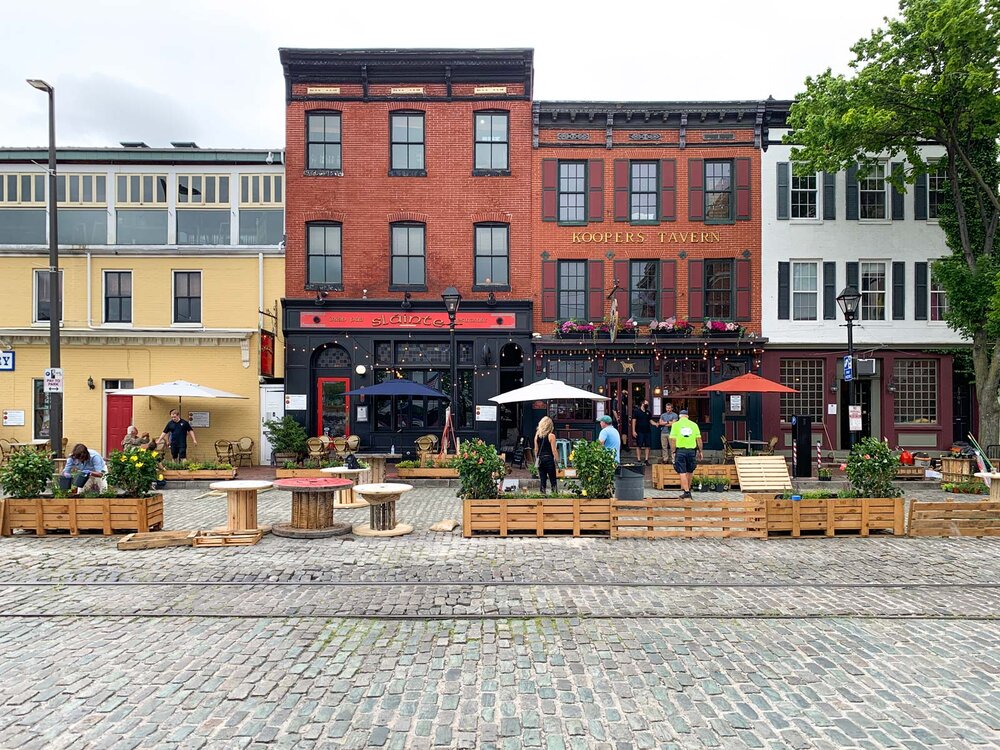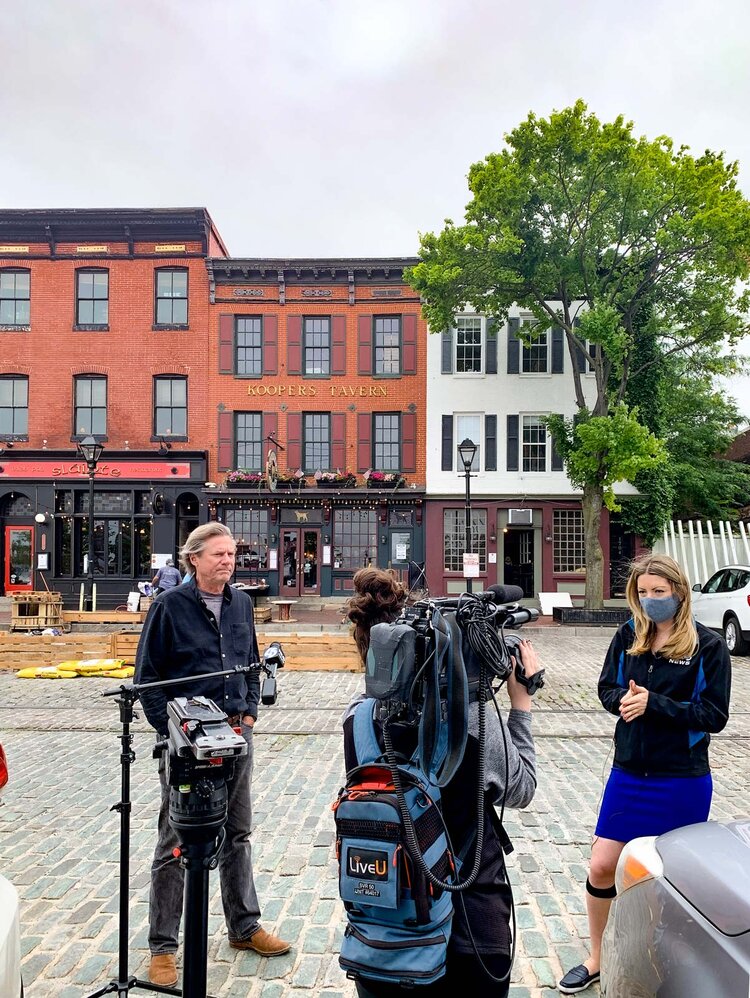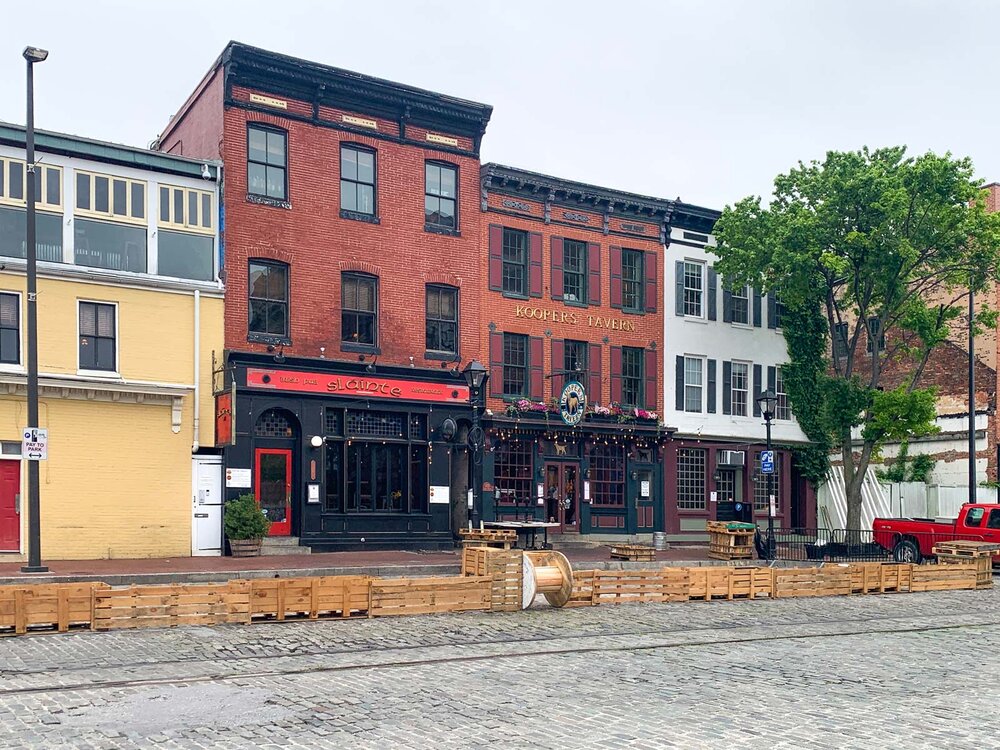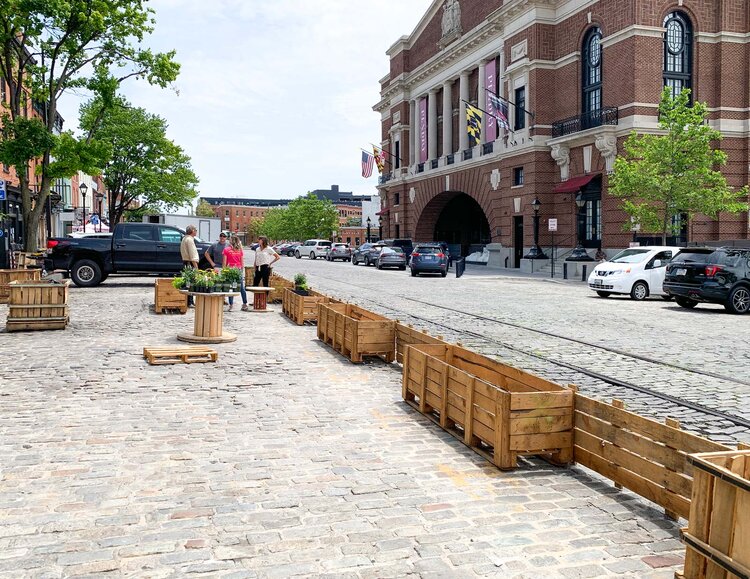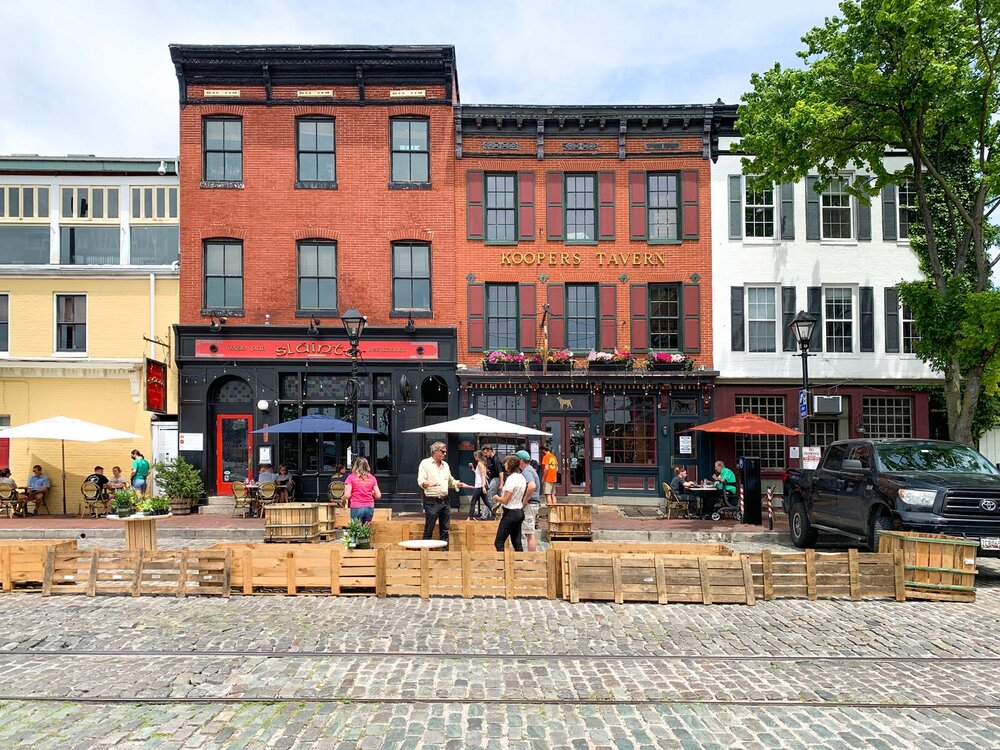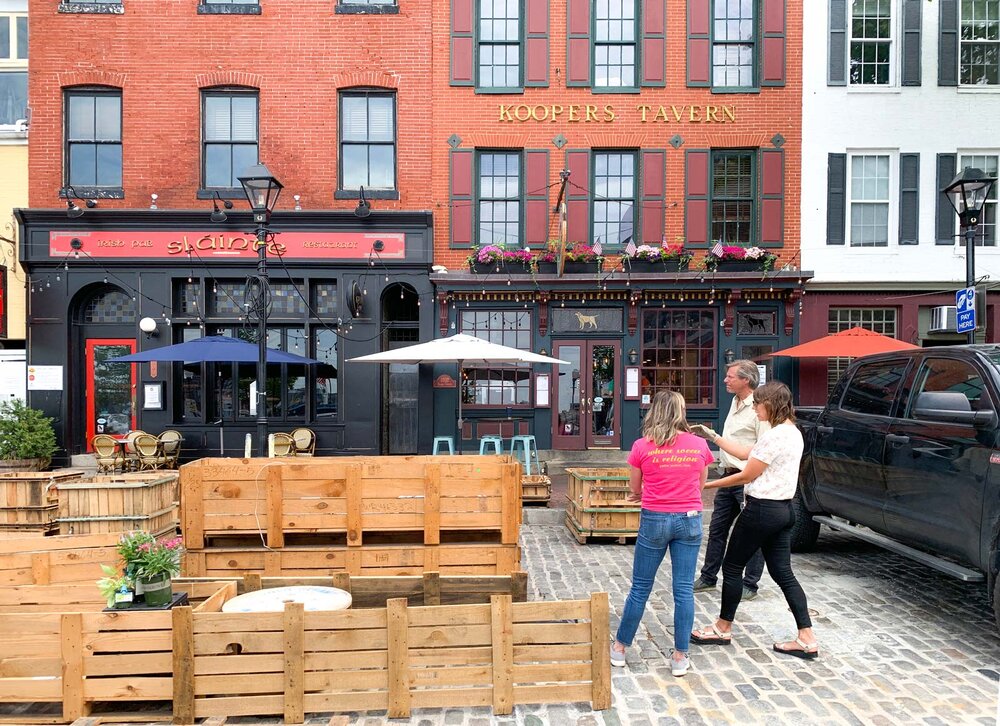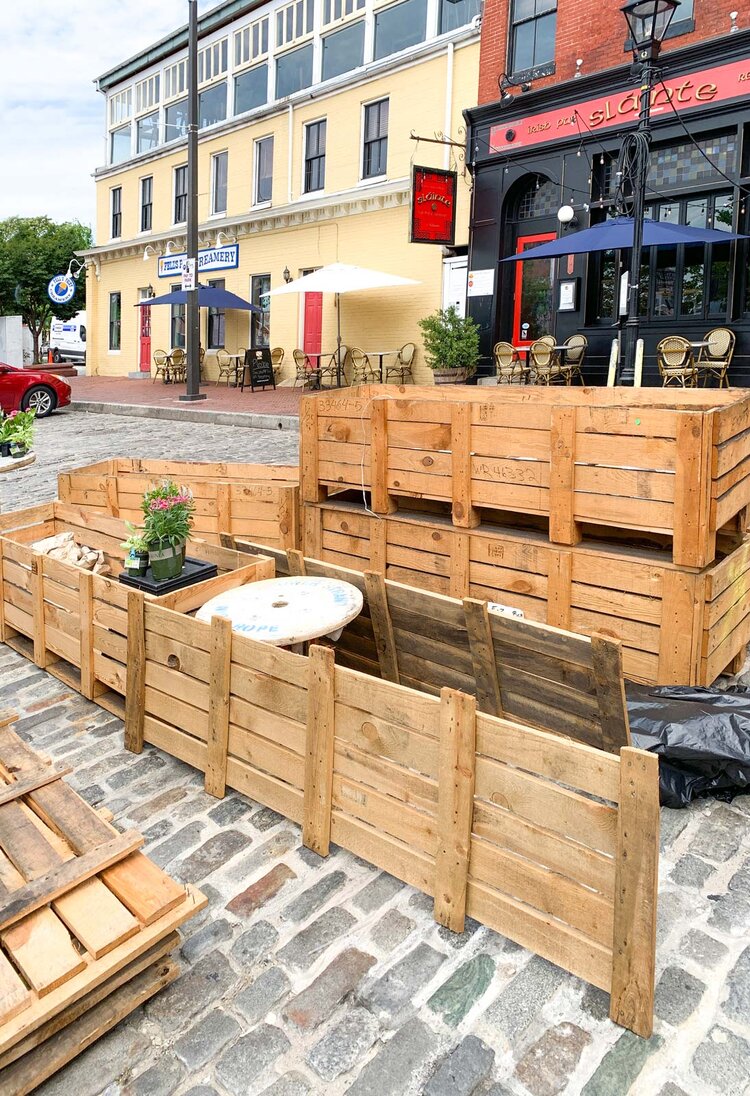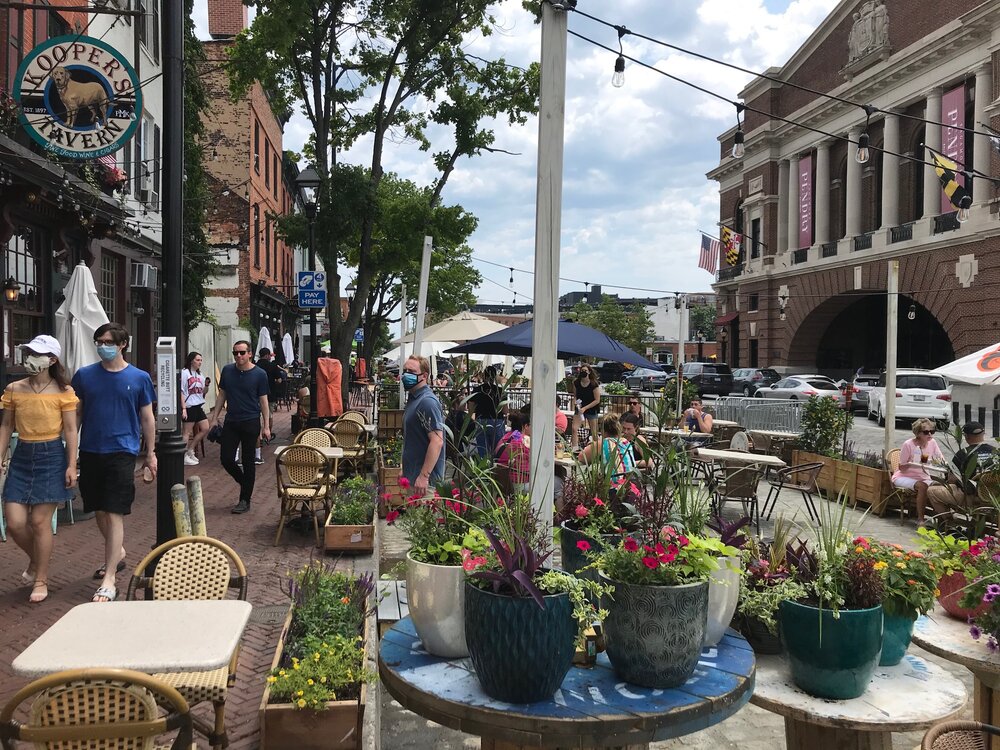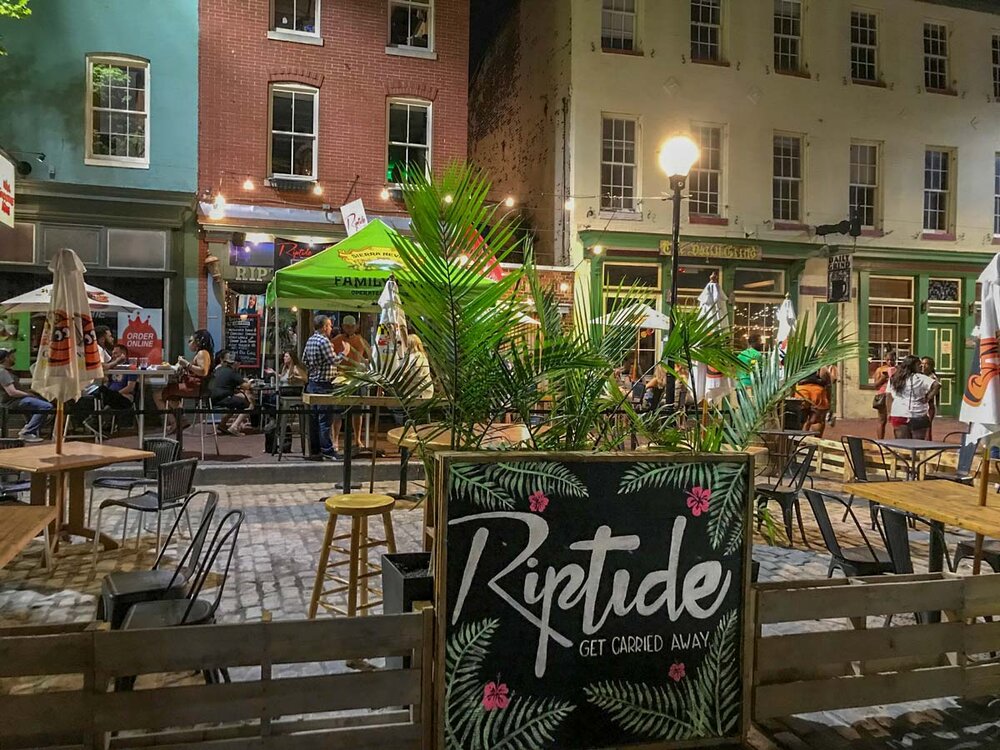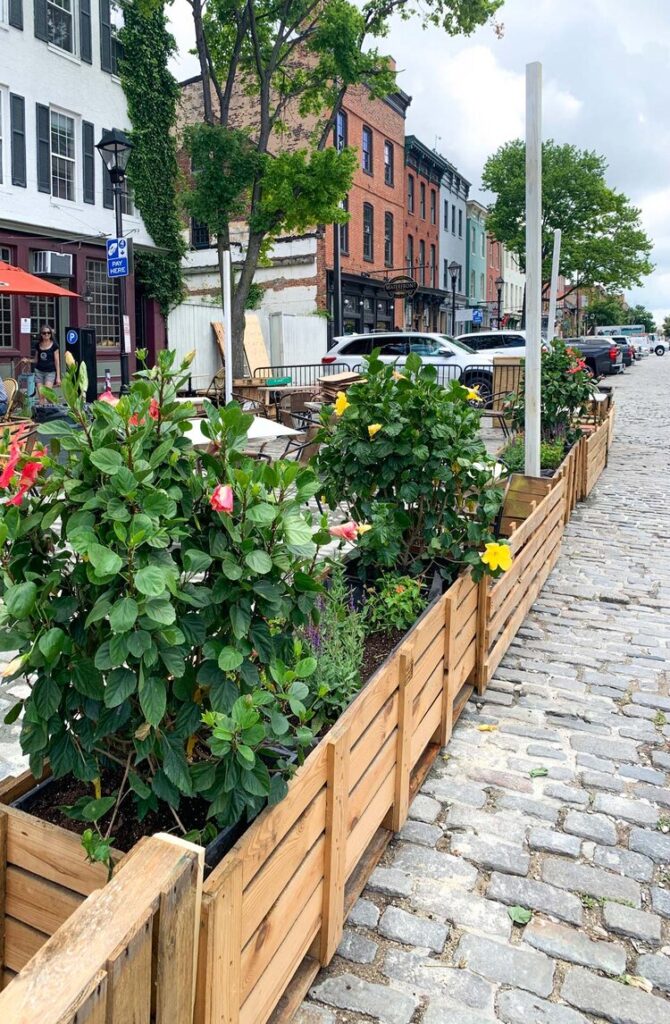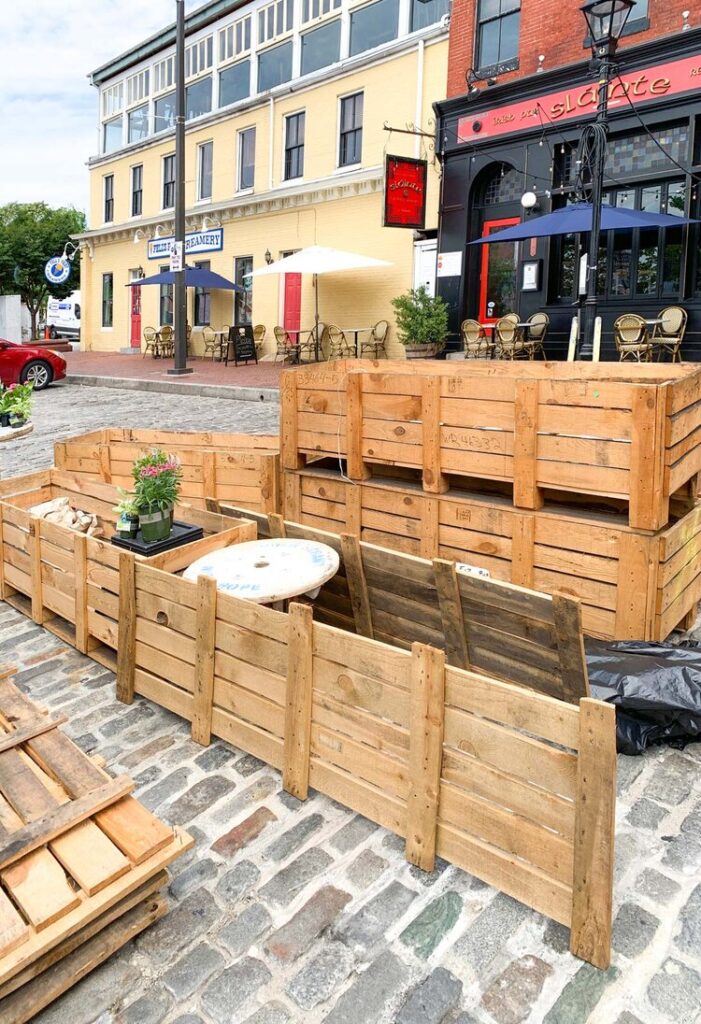Independent, small businesses provide the authentic local charm of many communities, such as Fells Point, a historic waterfront community in Baltimore, MD. These businesses are currently experiencing incredible suffering due to the pandemic. Community leaders can improve the opportunities for commerce by facilitating outdoor dining, parklets, and outdoor merchandising while simultaneously maintaining physical distancing in Fells Point and similar neighborhoods. At the same time, we can make great strides toward environmental stewardship and creating a sense of place by using repurposed, sustainable materials in our designs.
Neighborhood restaurants that face streets and parking areas can capitalize on adjacent outdoor spaces such as parking spots and sidewalks to remain viable as they weather the pandemic and adapt to the new parameters for operating their businesses.
The features of this project are accessible and temporary installations that are an attractive addition to the neighborhood and create a framework for local businesses to merchandise.
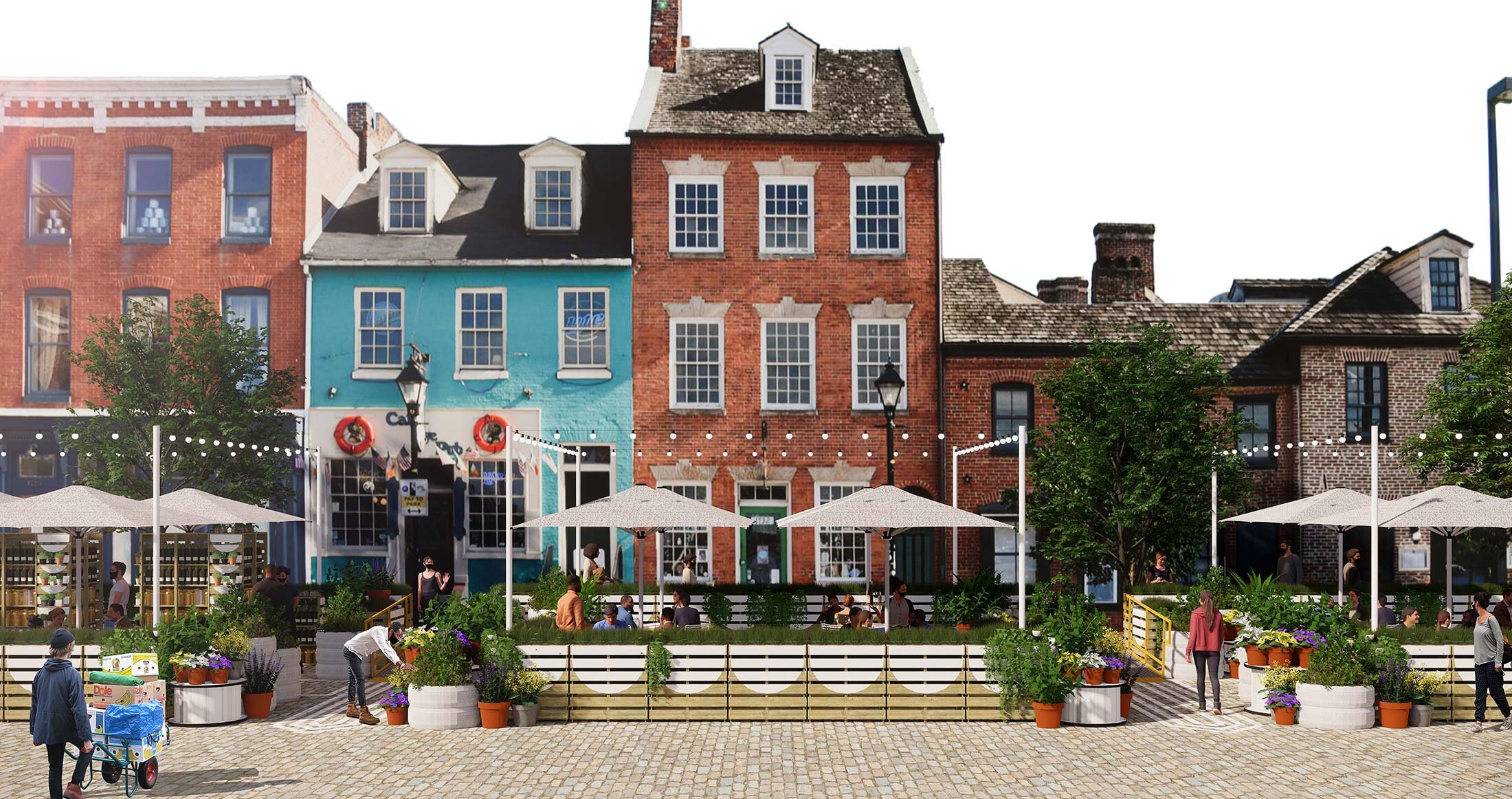
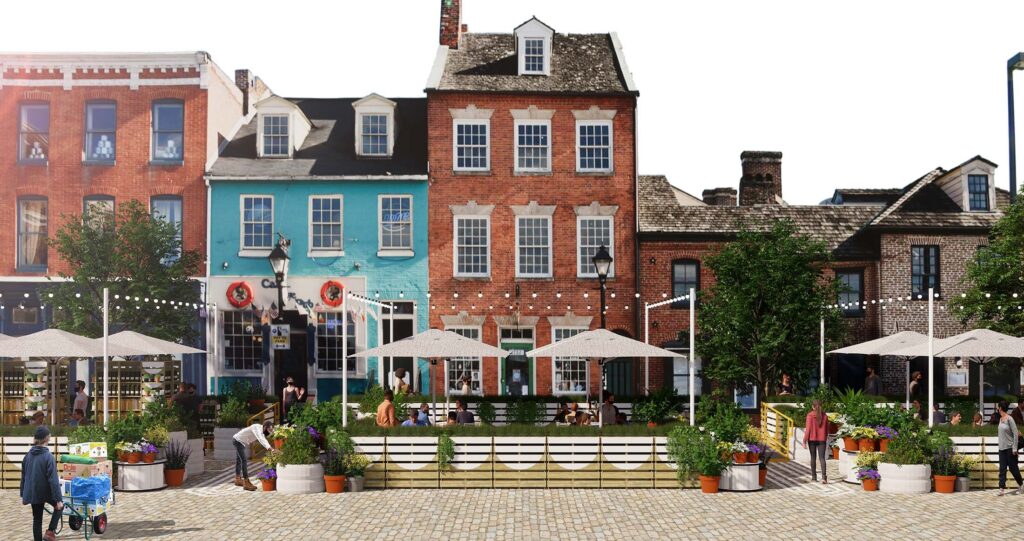
Providing an accessible environment requires softening the effects of a concrete curb. A semi-permanent, artistic installation using found materials provides an affordable solution. We designed ramps and parklets from plywood and low-cost materials that would allow access from the sidewalk and create a perimeter framework around a pop-up retailer or dining area.
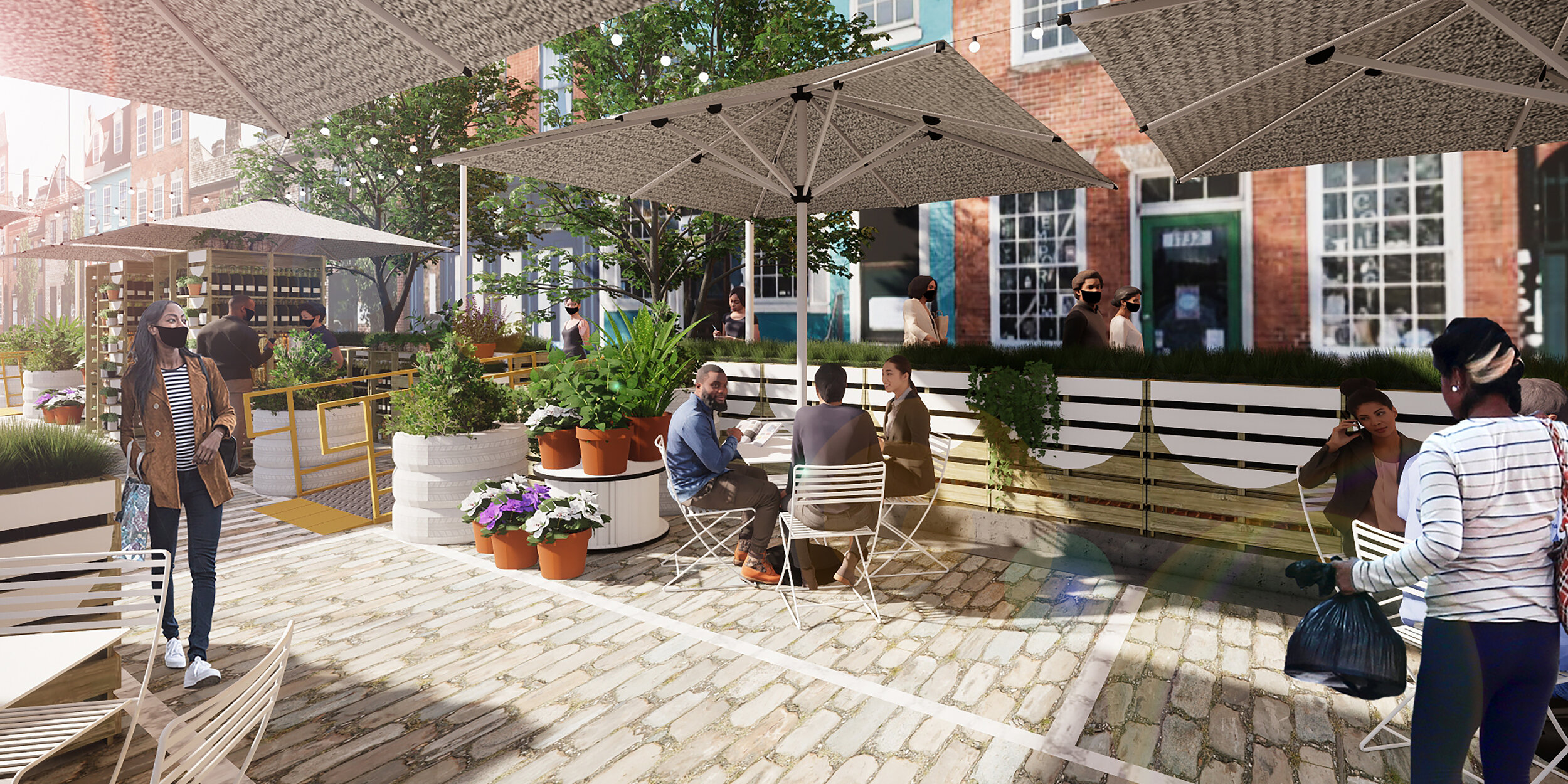
Providing an accessible environment requires softening the effects of a concrete curb. A semi-permanent, artistic installation using found materials provides an affordable solution. We designed ramps and parklets from plywood and low-cost materials that would allow access from the sidewalk and create a perimeter framework around a pop-up retailer or dining area.
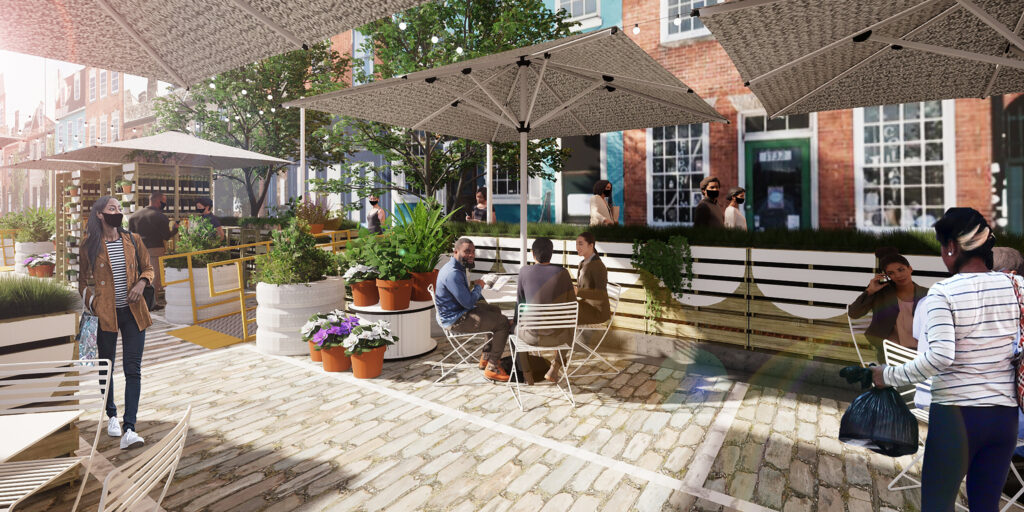
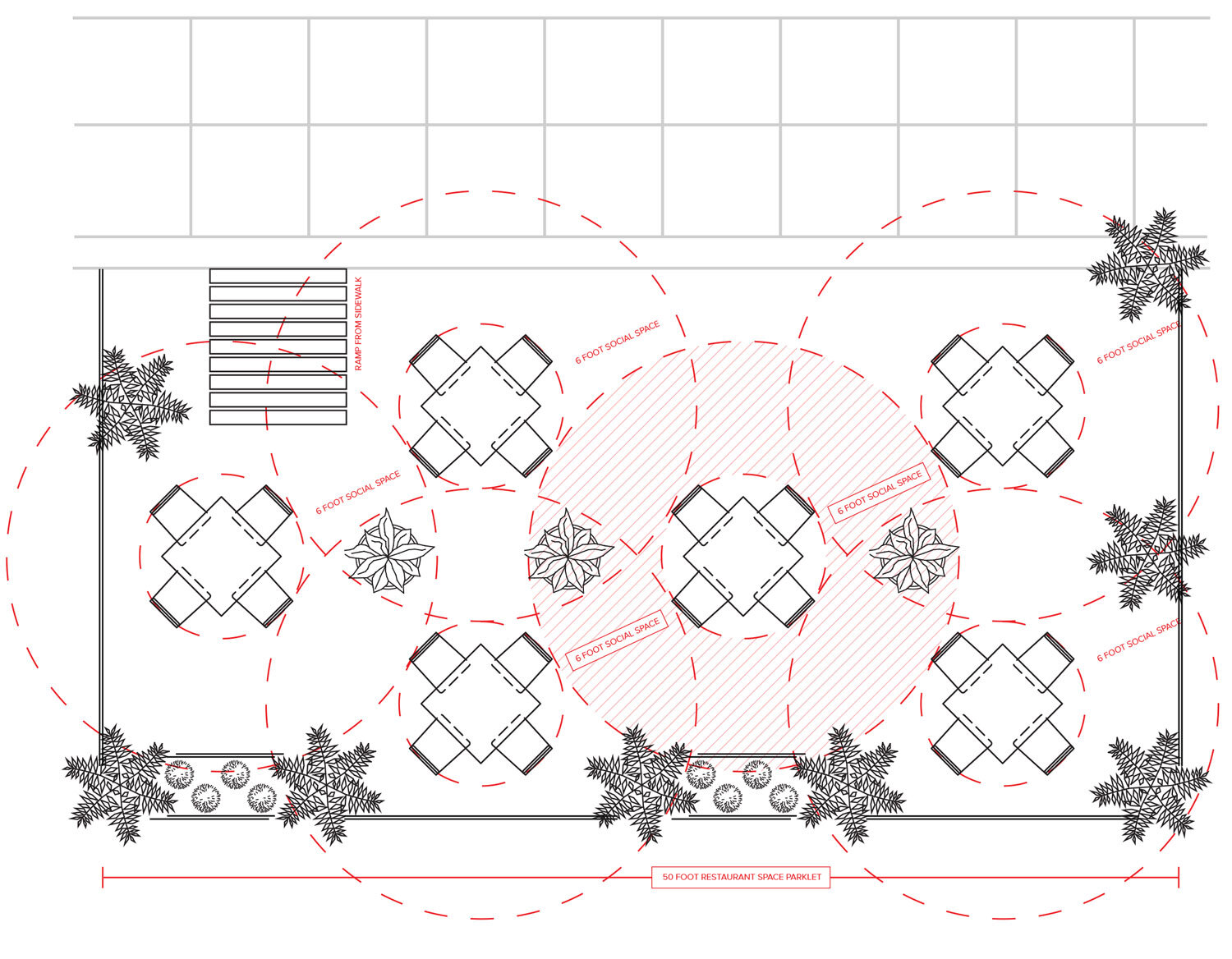
By repurposing wooden spools, crates, and pallets from local businesses, we felt that we could piece together an interesting ‘kit of parts’ to suit the needs of every establishment. When assembled, these parklets further attract, as well as protect, patrons with landscaping for an open, yet physically distant, experience.
The BCT staff came out to lend a hand through sourcing and picking up materials, providing design assistance, coordinating with city and community programs, and even building out the parklets with the business owners and volunteers.
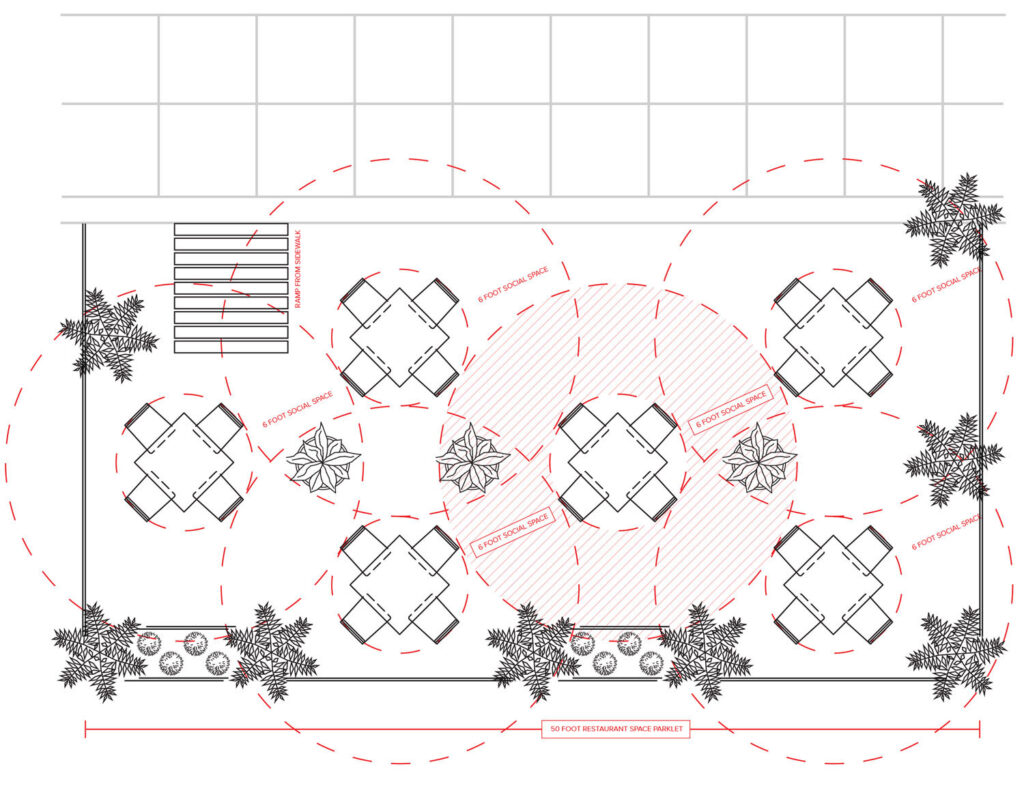
By repurposing wooden spools, crates, and pallets from local businesses, we felt that we could piece together an interesting ‘kit of parts’ to suit the needs of every establishment. When assembled, these parklets further attract, as well as protect, patrons with landscaping for an open, yet physically distant, experience.
The BCT staff came out to lend a hand through sourcing and picking up materials, providing design assistance, coordinating with city and community programs, and even building out the parklets with the business owners and volunteers.
